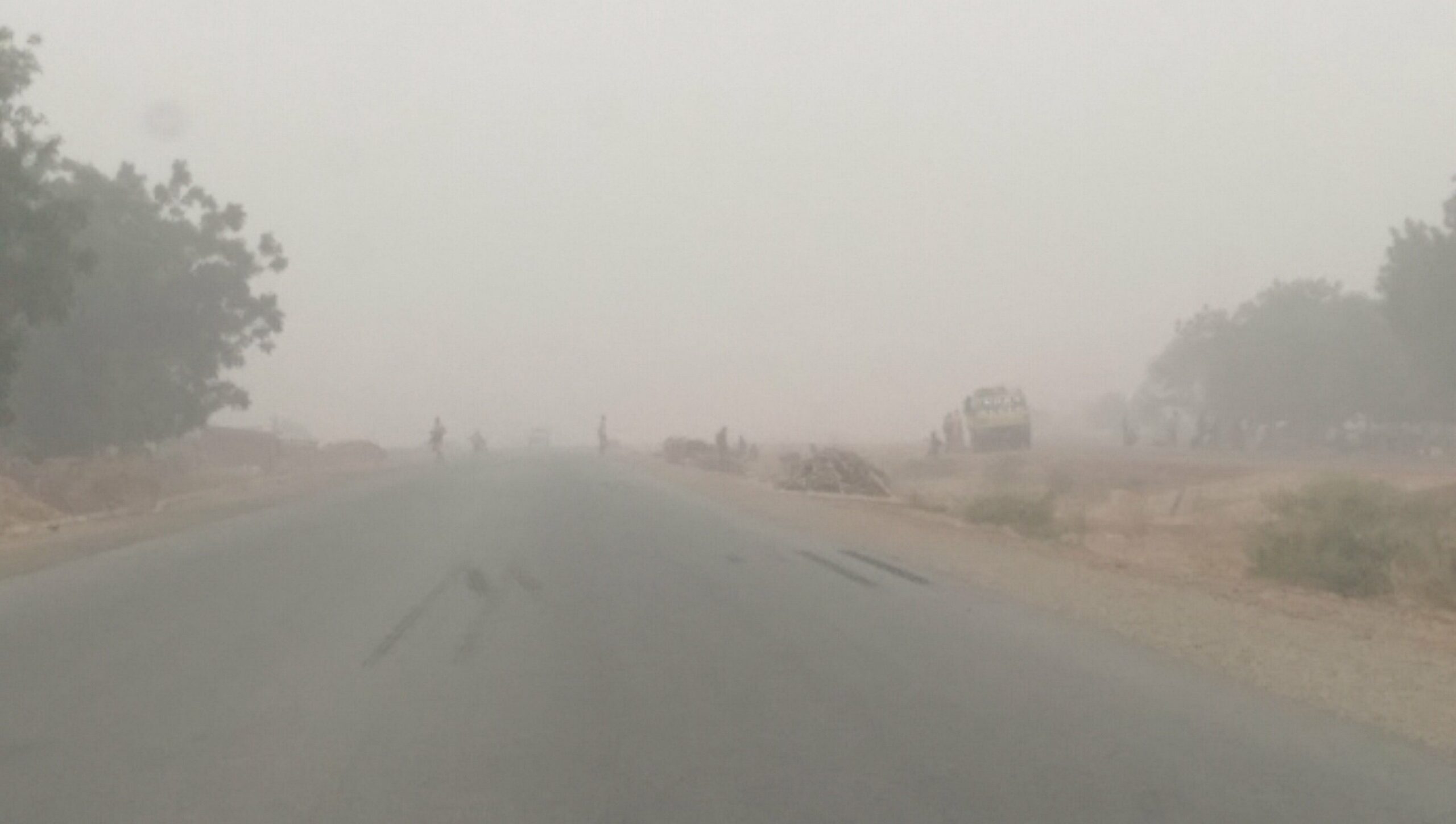Harmattan: Time for proactive measures
The Harmattan season is once again here with its negative effects on health, airline operations, and rampant and destructive fire outbreaks. The season begins from mid-November and lasts up to the middle of March. Jubilation as 344 Katsina students released Polytechnic workers begin strike Jan. 14 The Harmattan originates from the Sahara desert kicking up […]

The Harmattan season is once again here with its negative effects on health, airline operations, and rampant and destructive fire outbreaks.
The season begins from mid-November and lasts up to the middle of March.
The Harmattan originates from the Sahara desert kicking up strong winds, which create big clouds of dust leading to dust storms.
It sweeps across West Africa reaching the Atlantic coast at about this time.
The cold and dry winds often times cause temperatures to drop to as low as 9⁰ Celsius in places like the Mambilla and Jos plateau.
The heavy amount of dust in the air results in a lot of health problems like cough, catarrh dry skin, and broken lips in children and adults alike.
Asthma patients and people who suffer from other lung diseases are severely at risk at this time of the year.
It is clear, therefore, that the health and lives of ordinary Nigerians are at risk right now.
This is, therefore, not a time for complacency but for action on the side of federal, states and other stakeholders.
Together, they must ensure that the relevant drugs and other medications are readily available at health centres and hospitals.
The need for a widespread sensitisation campaign should not be overemphasised, particularly in rural areas.
For the aviation industry, this is a particularly difficult time.
The heavy amount of dust in the air frequently results in reduced visibility, causing flight disruption or outright cancellations for days on end.
Airlines suffer heavy losses running into millions of dollars in cancelled and diverted flights each year.
With the general insecurity in the country, more and more people are turning to air travel.
The volume of traffic at the airports across the country, therefore, is likely to jump exponentially.
The chaos at airports can at best be imagined.
As the weather worsens, airlines and pilots need to exercise maximum restraint.
They must abide by all the rules governing flight operations.
Under no condition should any aircraft take off or land when the minimum weather condition for such operation is not met.
The safety of air passengers must by far outweigh the drive for profit.
In the final analysis, the powers for the smooth and safe flight operations rest squarely with the Nigerian Civil Aviation Authority.
It should discharge that function with the uttermost sense of responsibility and also not hesitate to wield the big stick where and when necessary.
The Harmattan is also a season of rampant fire outbreaks, especially in rural communities.
The atmospheric condition is cold and very windy especially at night when the temperatures drop sharply.
People, therefore, try to keep warm by making fires in their rooms.
But often, when the household is deeply asleep, the fires get out of control and result in massive damage and even loss of lives.
In many rural communities, people are still engaged in harvesting their crops.
Farmers often have reason to ignite a fire on the farms.
But because everywhere is dry and windy the fires too often get out of control and spread very quickly resulting in massive destruction of crops and vegetation cover.
This is a yearly occurrence. Local and state authorities should act proactively during this time to save the lives and property of their people before they go up in flames. A stitch in time saves nine.
